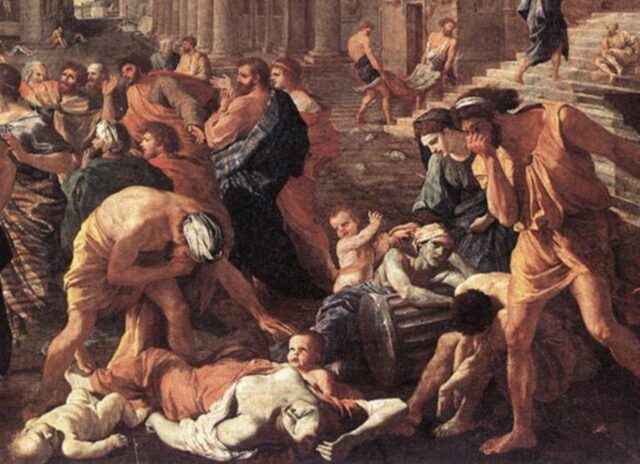Category: Reflections
Theological Studies in the Time of a Pandemic
 by David M. May, Ph.D.
by David M. May, Ph.D.
Landreneau Guillory Chair of Biblical Studies
Central Baptist Theological Seminary
Living in this unprecedent time of the Pandemic of 2020, multiple existential questions arise—from the deep and thoughtful question, “Will I risk my life in serving others who are infected with COVID-19,” or the simple and quotidian question, “Where can I find toilet paper?” For theological students currently focused upon reading heavy tomes, writing research and analysis papers, and engaging in discussions and presentations, a reasonable question is “how can we (and should we) continue to do theological studies in the midst of a pandemic?” While this pandemic is a new experience for us, remember that the church has persevered through several of these experiences of plagues and pestilences.
The Cyprian Plague (250-271 C.E.) was probably a plague of measles or smallpox, and up to 5000 people a day were dying in Rome. In the 540s C.E. was the Justinian Plague (probably bubonic). At its height, the death carts of Constantinople were carrying away 10,000 corpses a day. As Procopius, an eyewitness to this plague, wrote, “During these times there was a pestilence, by which the whole human race came near to being annihilated.” During these past catastrophic (one might even say, apocalyptic) times, however, individuals kept pouring over their books, debating theological issues, copying and transmitting the Scriptures, and writing works that we still read today. Of course, they also ministered to the infected and provided comfort to those who were suffering and those who were dying; this is what Christians did. The theological students and scholars of that day, however, even in maelstroms of misery, kept on reading, writing, and teaching, because they understood that a plague was not the end.
The world will continue–but it will be changed. In fact, one should consider at this moment a paradigm shift is happening in relationship to how we understand reality and communicate the gospel. So, now more than ever, we need thoughtful pastoral-theologians of the church who will be able to guide us during this shift. Churches, communities of faith, and the world in general will need students who have reflected and struggled with questions such as “where is God,” “why has this happened,” and “how do we make sense of this loss?” What folks don’t need are simplistic answers but answers from the sustained reading of theologians from the past, answers from creative exegesis upon relevant biblical passages, and answers based on critical engagement with pastoral, psychological and sociological categories.
And of course, if any theological education is worth its salt, it teaches that there aren’t answers to all questions. As I learned from one of my biblical professors during my own educational journey, “we do not have complete answers in our search for meaning;” however, by “wrestling with potential answers,” one can better understand the realities of the world (Christ and Chaos, Gerald Borchert, pp. 6-7). In the midst of a pandemic, it is an appropriate time to wrestle texts, debate questions, and write in the margins of our textbooks.
One should remember that some of the most important biblical and theological insights we possess in the Hebrew Bible and the New Testament were penned by individuals living through crises and who were struggling to make sense of their world in relationship to God, community, and self. Parts of the Hebrew Bible were written because of the “plague” of the Exile, and much of the New Testament is a struggle with the “plague” of empire. Often during times of plague, it is those individuals doing theological studies who are called upon most to help shape Christian identity and actions that are based upon the old but transformed by the new. We are thankful at Central for each student who is called to do theological study at this karios-moment in the life of the Church.
